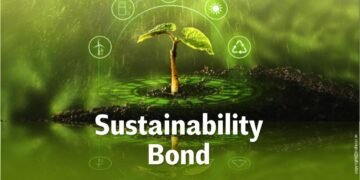The word ‘Biodiversity’ has evolved from a commingling of the descendants of the Greek noun bios, which means “mode of life,” and the Latin verb divertere, which means “to turn aside” or “to go different ways.” Biodiversity is a short way of saying biological diversity. It describes the variety and variability of Life on Earth.
Symbiotic connections exist between humans, animals, plants, insects, and even microbes. In fact, deep connections exist between all life forms on Earth. Together, they make up ‘The Web of Life’.
Sustaining this web of life requires the performance of a million functions. To do them efficiently, there exist a million diverse lifeforms, each performing a different but vital function. Thus, it is vital to preserve Biodiversity if we want to preserve life on earth.
Biodiversity is often understood in terms of the wide variety and interdependence of plants, animals and microorganisms that inhabit the planet. Although biodiversity is very complex, this ‘web of life’ includes:
Species Diversity: A species is a group of organisms that can reproduce. Species diversity is the most obvious type of biodiversity. Our planet, Earth, supports an estimated 8 million species and many more which are yet to be identified! Within a species, there is genetic diversity.
Genetic Diversity: Biodiversity includes genetic differences within each species, for example, between varieties of crops and breeds of livestock. Chromosomes, genes and DNA – the building blocks of life – determine the uniqueness of each individual and each species.
Ecosystem Diversity: Another aspect of biodiversity is the variety of ecosystems such as those that occur in deserts, forests, wetlands, mountains, lakes, rivers and agricultural landscapes. In each ecosystem, living creatures, including humans, form a community, interacting with one another and with the air, water and soil around them. A single tree in the Amazon rain forest, can provide a home for up to 2,000 species of birds, insects, fungi, epiphytes and microorganisms.
Biodiversity also provides a variety of ecosystem services, which are critical to human survival. Between 50-90 percent of the human diet, by both volume and calories, depending on the country, comes directly from flowering plants.
Provisioning Services: Services that describe the material or energy outputs from ecosystems. They include food, water and other resources.
Regulating Services: Services that act as regulators. E.g. regulating the quality of air and soil or by providing flood and disease control.
Cultural Services: Non-material benefits that people obtain from contact with ecosystems. They include aesthetic, spiritual and psychological benefits.
Supporting Services: Services necessary for production of all other ecosystem services – from the very basic provision of living spaces for plants or animals to maintaining a diversity of different breeds of plants and animals. Plus, services such as Nutrient Cycling, Water Cycling Soil Formation and Photosynthesis etc.
Biodiversity Loos
Current negative trends in biodiversity and ecosystems will undermine progress towards 80% of the assessed targets of the SDGs, related to poverty, hunger, health, water, cities, climate, oceans and land. Loss of biodiversity is therefore not only an environmental issue, but also a developmental, economic, security, social and moral issue as well.
The value of global ecosystem services is estimated at $16-$64 trillion. The loss of biodiversity can have a direct impact upon business operations, where raw materials are no longer available at the quality and in the quantity needed.
Pharmaceutical Sector: 25-50% depend on genetic resources.
Biotechnology Sector: Many products (enzymes, microorganisms) are derived from genetic resources
Agricultural Sector: More than 75 per cent of global food crop types, including fruits and vegetables and some of the most important cash crops, such as coffee, cocoa and almonds, rely on animal pollination.
Personal Care, Botanical, Food & Beverage Sector: Some products (‘natural’ products) from genetic resources.
Dependence of Business on Biodiversity
While biodiversity is fundamental to preserve ‘life as we know it’, it is also critical for businesses to function Increasing costs in commodity supply chains, as a result of decreasing biodiversity, can have consequences on a company’s bottom line. This threatens future cash flows and the stability of business by amplifying unmanaged risks in supply chains.
Impact of Business on Biodiversity
Direct Impacts: Stem primarily from land use and waste generation. Include habitat loss and degradation, erosion, species loss, air and water pollution, soil and water contamination. Introduction of non-native species can disrupt surrounding ecosystems. Can affect local communities by reducing access to natural resources or disrupting ecosystem services, such as erosion control.
Indirect Impacts: Caused by third party suppliers in the sourcing and production of goods and services used by a company. Can result from the use or disposal of a company’s products by consumers or other business users. Changes in behaviour by others, including local people, employees and in-migration, that are prompted by a company’s operations may lead to induced negative impacts to biodiversity.
Cumulative Impacts: Arise when the operations of several companies in close proximity begin to collectively affect biodiversity. Although individual business decisions or activities may have insignificant direct impacts on biodiversity, when combined, their impact may be significant.
Risks
Regulatory Might your business be affected by regulatory responses to biodiversity loss? e.g. extraction quotas, ecosystem pricing regimes, permitting requirements, carbon taxes.
Physical Will ecosystem degradation expose your operations to increased disruption? e.g. flooding, desertification. Reputational What negative impacts on biodiversity are ‘hidden in the closet’ in your operations or supply chains? e.g. unsustainable sourcing, impacts on endangered species, pollutants.
Supply Chain Could biodiversity risks threaten the operations of your key suppliers?
Opportunities
Brand Differentiation Processors and retailers can take advantage of rapid growth in demand for certified sustainable agricultural products to enhance brand value and differentiate their products with consumers.
New Revenue Streams Sales of products/services which help producers to conserve biodiversity whilst increasing production.
Business Diversification Servicing the rising demand by businesses for biodiversity conservation within their area of impact.
Biodiversity certifications
Biodiversity certifications are powerful instruments that enable all actors in an ecosystem to make important improvements to the way they manage and monitor their impact on biodiversity. Certifications ensure that organisations adopt best practices, control risks and performing above specified standards. Certifications help customers buy responsibly and there by ensure that their supply chain is aligned to their biodiversity goals.
(Source)



























